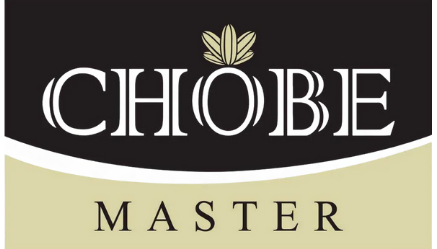
Introducing solid foods to your baby is a significant milestone in their development. Among the early foods parents consider are baby cereals, often made from grains like rice or oats. However, the decision to start grains at 6 months requires careful consideration of nutritional needs, digestive readiness, and potential allergenic risks. This article explores whether grains like baby cereal are suitable for a 6-month-old, along with benefits, risks, and practical tips for introducing them.
Understanding the Readiness: Is 6 Months the Right Time?
Importance of Starting Solids
At around 6 months of age, most babies start showing signs of readiness for solid foods. These signs include being able to sit up with support, showing interest in what others are eating, and displaying good head control. Pediatricians often recommend starting solids around this age because breast milk or formula alone may no longer provide sufficient nutrition as the baby grows.
Developmental Considerations
By 6 months, babies have typically lost the tongue-thrust reflex, which automatically pushes food out of their mouths. This reflex diminishes as the digestive system matures, allowing babies to begin accepting and swallowing more solid foods. Introducing grains at this stage helps them transition from a liquid-only diet to a more varied and textured one.
Types of Baby Cereals: What Are They Made Of?
Common Grain Choices
Baby cereals are usually made from single grains such as rice, oats, barley, or wheat. These cereals are processed into fine powders that can be easily mixed with breast milk, formula, or water to create a semi-liquid consistency suitable for early feeding.
Fortification
Many commercial baby cereals are fortified with essential vitamins and minerals, such as iron, zinc, calcium, and various B vitamins. These nutrients are crucial for supporting growth and development during infancy when breast milk or formula alone may not provide adequate amounts.
Benefits of Introducing Baby Cereal
Nutritional Boost
Baby cereals serve as a good source of iron, which is important for babies as their iron stores from birth begin to deplete around 6 months of age. Iron-fortified cereals can help prevent iron deficiency anemia, a common concern in infancy.
Easy to Digest
The smooth texture of baby cereals makes them easy for babies to swallow and digest, especially as they are just beginning to explore solid foods. This can be particularly beneficial for babies who may struggle with chunkier textures initially.
Gradual Introduction to Solids
Starting with cereals allows for a gradual introduction to solid foods, preparing your baby’s palate and digestive system for more complex foods and textures in the months to come.
Risks and Considerations
Allergenic Potential
Grains like wheat and barley contain gluten, which is a potential allergen. Introducing gluten too early (before 4-6 months) or too late (after 12 months) may increase the risk of developing gluten intolerance or celiac disease in susceptible individuals. It's essential to consult with a pediatrician before introducing gluten-containing cereals.
Constipation
Some babies may experience mild constipation when first introduced to solid foods, including baby cereals. This is often due to their immature digestive systems adjusting to new foods. Offering plenty of water and fiber-rich fruits and vegetables alongside cereals can help alleviate this issue.
Rice Cereal and Arsenic Concerns
Rice cereals, commonly used for infants, have raised concerns due to their potential arsenic content. Arsenic is a naturally occurring element found in soil and water, and rice tends to absorb more arsenic than other grains. To mitigate risk, parents can diversify grains used (such as oat or barley cereals) and choose rice cereals labeled as low in arsenic.
Tips for Introducing Baby Cereal
Start Slowly
Begin with small amounts of baby cereal mixed with breast milk, formula, or water to achieve a semi-liquid consistency. Gradually increase the thickness as your baby becomes more comfortable with swallowing.
Observe for Reactions
Watch for any signs of allergic reactions or digestive issues after introducing baby cereals. Symptoms may include rash, diarrhea, vomiting, or excessive fussiness. If you notice any concerning symptoms, consult with your pediatrician promptly.
Variety is Key
While rice cereal is traditional, consider offering a variety of grains to expose your baby to different flavors and textures. Oatmeal, barley, and multi-grain cereals can provide nutritional variety and help avoid over-reliance on a single type of grain.
Conclusion
Introducing grains like baby cereal around 6 months can be a nutritious addition to your baby’s diet, offering essential nutrients and aiding in the transition to solid foods. However, it’s important to be mindful of allergenic risks, digestive readiness, and the quality of the cereals chosen. Consulting with a pediatrician before starting solids and closely monitoring your baby’s reactions can help ensure a smooth and positive experience as your little one embarks on this exciting culinary journey.
By understanding your baby’s developmental readiness and nutritional needs, you can confidently introduce grains like baby cereal into their diet, fostering healthy eating habits from the start.

